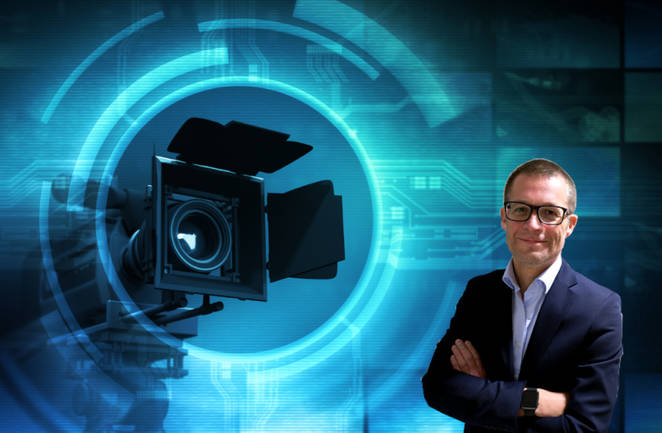Earlier this year, we looked into “The art of strategic communication”, the theme of this year’s Jurismus International Meeting. This month, we take a closer look at “How to work with the media”. Expert commentator Thomas Benson of Angell Advokatfirma in Norway shares his experience.
Thomas Benson, lawyer at Angell Advokatfirma and expert in employment law, is an expert commentator for employment law for NRK News and Tv2 News in Norway. Thomas has been working in employment law for 19 years; he is a member of the Norwegian bar association and the expert group for employment law. As an expert commentator, he is contacted by the media, who asks for his opinion, and to comment on cases of public interest, such as collective agreements, strikes, or discrimination cases.
In addition to Thomas’s work at Angell Advokatfirma, he is a lecturer at the university, publishes articles, and participates in regional and national news broadcasting, both on TV and on the radio. “Writing articles, giving lectures, teaching, etc., all that has become an important asset for today’s lawyers. In the future, doing exclusively legal work will not be enough. The proof of knowledge, being up-to-date by writing articles and publishing pieces will become more important.”
As an expert in employment law, Thomas was contacted by the media during a major strike in Norway. Since his contribution on striking rights, he has been working with the media on a regular basis. But getting contacted is not enough, “the recall is what matters because journalists contact a lot of lawyers to test their suitability for public communication.”
Without doubt, working with the media demands specific communication skills as it differs substantially from the legal practice. While the legal profession uses academic, often wordy, language in great detail, public communication requires a clear and easy language.
Thomas takes it further, “when you are a commentator you have to be a bit tabloidy.” In this context, tabloidy means making it simple, using tabloid language backed by legal knowledge. For a lawyer and expert, the main challenge when working with the media is not the legal background but to find the right words. “Making it easy is very difficult. You have to invest a substantial amount of time in the preparation before a media appearance or media contribution.”
Many questions influence the wording during the preparation, such as: What is the programme and what is its audience? What is the topic and what areas will be covered? Is anyone else being interviewed, and if so who? How long will the interview last? Is it live or pre-recorded? “I always get a bit nervous before live broadcasting. The connection, the sound quality, my performance, etc., everything needs to work perfectly, nothing can be corrected, and once it is out there, it is out there. Whereas when recorded, as an expert I do have the possibility to stop, start over, cut, or correct certain parts.”
Experts usually receive the questions beforehand or receive a short briefing. But because changes can happen within minutes, the whole concept might change out of the sky. “Therefore, I follow the news coverage during my daily practice to see what is covered by the media. When on the air, I try to fit my part into the coverage and programme. The overall context matters.”
What is more, no interview will be the same, and print, radio and TV interviews all differ significantly. “That is why I invest a considerable amount of time, and I weigh my words carefully when preparing my punch line and core message.” In the end, the wording needs to be suitable for the audience. People should be able to relate to the segment, the main point needs to be accompanied by a strong start line and ending line, and needs to be communicated within the given time, likely 30 to 50 seconds.
For Thomas, his appointment as an expert commentator is an achievement that brings along benefits. “I have learned how to be a better lawyer by working with the media, and I have gained many new clients.”
In the future, a lawyer should be able to communicate with the client and potential clients in an easily comprehensible language while having a proficient legal background. The ability to summarise a case, making it understandable for everyone is a great asset. “Clients appreciate that ability. That is why trainee lawyers should be taught on that front. After all, people’s top priority is the result and not the legal technicalities.”
About Thomas Benson:
Thomas is a lawyer and partner at Angell Advokatfirma in Bodo, Norway. He is an expert commentator of employment law on NRK News and Tv2 News. Further, he participated several times in regional and national news broadcasting, both on TV and on the radio. Thomas is a lecturer of Employment Law at Nord University, a City Advocate for a number of councils, and the author of “Arbeidsrettsboka”. He is a Member of the Norwegian Bar Association’s Committee on Employment Law and a Board Member of Eurojuris International.
Links:
Thomas Benson: angelladvokatfirma.no/mennesker/thomas-benson
Angell Advokatfirma AS: angelladvokatfirma.no
Facebook: www.facebook.com/AngellAdvokatfirma
Linkedin: www.linkedin.com/company/angell-advokatfirma
Article “Strategic Communication and the Legal Profession”: www.eurojuris.net/en/node/44638
Photo Thomas Benson:
OLE MARIUS RØRSTAD / NRK


